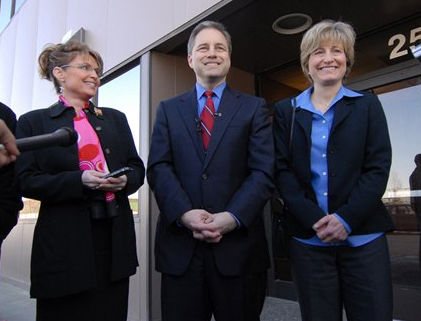A clear victory could all but secure the nomination for Romney, but a close call or loss would be detrimental, experts say. By Gil Kaufman Mitt Romney Photo: Joe Raedle/ Getty Images No Republican has ever won his party’s presidential nomination without notching a win in South Carolina. That’s just one reason former Massachusetts Governor Mitt Romney is hoping that when the dust clears Saturday night (January 21), he will be celebrating his second primary win in a row and, in theory, the key to his party’s nomination. South Carolina was expected to present Romney with his biggest challenge to date, due to its heavy Evangelical population. The man vying to be the Republican Party’s first Mormon presidential nominee was up by anywhere from 11 to 15 points in polls taken in the week before Saturday’s vote, with some predicting he’d get more than 40 percent of the vote. By Friday morning, however, a number of polls had him in either a dead heat with or trailing former House Speaker Newt Gingrich. Both men were well ahead of former Pennsylvania Senator Rick Santorum and Congressman Ron Paul. In addition to his eroding poll numbers, Romney suffered a series of unfortunate events Thursday when a further analysis of the vote in Iowa revealed that Santorum had actually won the too-close-to-call Iowa caucus by 34 votes, erasing Romney’s razor-thin eight-vote win and his bragging rights for going 2-and-0. A short time later, Texas Governor Rick Perry abruptly dropped out of the race , throwing his support behind Gingrich. “If [Romney] wins South Carolina, it depends by how much. If he wins by 15, I would say, yes, he’s [the presumptive nominee]; if it’s in the close single digits, he’s not running at a pace to get the majority of the delegates,” said Columbia University professor of political science Robert Y. Shapiro, an expert in voting and political behavior. “All Gingrich has to do is stay in and if can run close enough and continue to raise money he could keep running.” Romney, who still has his solid New Hampshire win in pocket, has been taking heavy fire from Gingrich over the past few weeks. The former congressman has taken Romney to task for what he has deemed his opponent’s “vulture capitalist” ways while running the investment firm Bain Capital, where Romney oversaw the shuttering of a number of businesses, resulting in numerous layoffs. Romney has hit back at Gingrich for what he labeled an attack on “free enterprise,” accusing him of sounding like a Democrat in his criticisms. Larry Parnell, an associate professor and program director of the graduate school of political management at George Washington University, said the net effect of a potential Romney win and a possible shift in Perry voters to Gingrich could turn what he described as a “circular firing squad” of GOP nominees into a duel between the two men. “If [Romney] wins South Carolina, he will still have to deal with Gingrich, and it could slow him down,” said Parnell, a former press aide for the presidential campaign of Democrat Jimmy Carter. In terms of appearances, Parnell said even with a win in South Carolina, Romney is not likely to declare himself the presumptive candidate, because it could draw even more fire from his remaining opponents. “It’s in his best interest to keep conducting himself the way he has,” he said. “To say that now he’s ready to take on President Obama is just waving a red flag in front of Gingrich.” As long as he continues on the slow-and-steady path of wins, Parnell said, Romney should be able to weather the storms and likely come out on top. After the now-narrow loss in Iowa and a more convincing win in independent-leaning New Hampshire, observers have been looking to the solidly red state of South Carolina as the first test of whether Romney can convince traditional Evangelical voters that he is the right choice for the party. Parnell said that given South Carolina’s record in picking the eventual establishment candidate, any deviation from that norm (i.e., a too-close-to-call Gingrich finish or win) could cause some serious problems for Romney. A win, however, would prove Romney is a viable national candidate and ease the pressure on him to win over the party’s still-reluctant-to-commit base. Over the past week, Gingrich urged Santorum and Perry to drop out of the race so conservative voters can rally behind just one “anti-Romney” candidate, arguing that he is the only remaining candidate who knows how to build a national campaign. Even as his poll numbers jumped, though, Gingrich faced another obstacle Thursday when his second ex-wife appeared in an ABC News interview in which she claimed the former speaker had urged her to have an “open” marriage so he could continue an affair with his then-mistress, now-wife Callista. Both men agreed a solid Romney win in South Carolina could all but ensure his eventual path to the nomination, though a close Gingrich finish could propel the ex-congressman to Florida’s primary January 31. Check back for up-to-the-minute coverage on the primary races and stick with PowerOf12.org throughout the 2012 presidential election season.

Read this article:
Is South Carolina Primary A Must-Win For Mitt Romney?





























